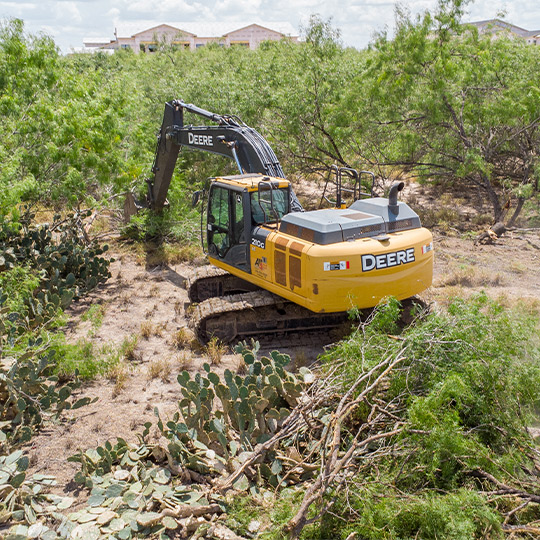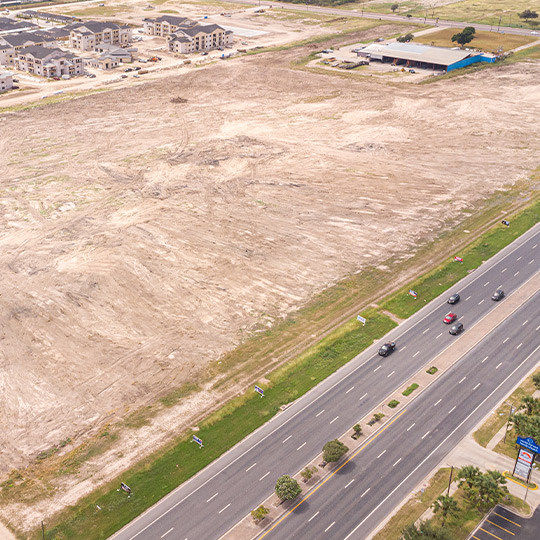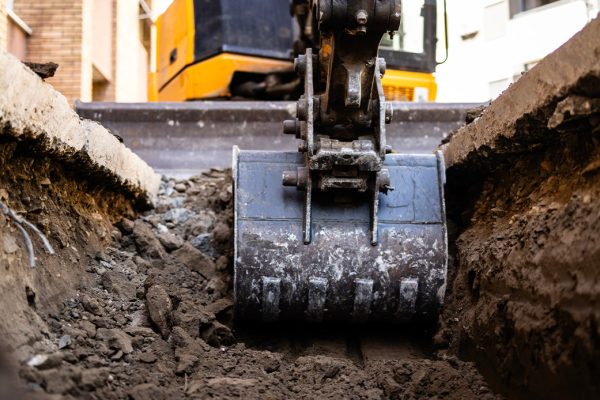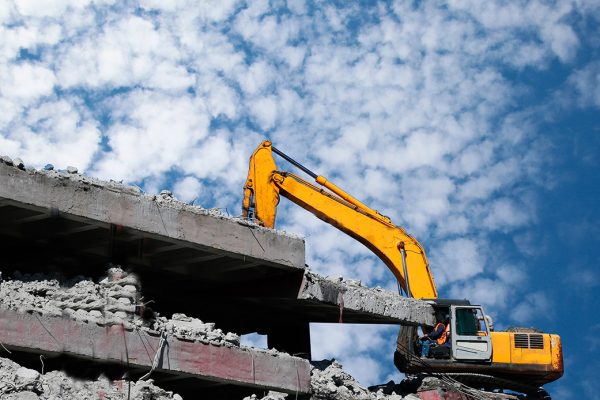Before any structure rises or landscape design takes shape, the ground beneath it must be properly prepared. Land clearing is the essential first chapter of every development story. It transforms overgrown, uneven, or wooded land into a ready foundation for your vision.
But here’s the catch: choosing the wrong contractor can lead to budget blowouts, legal troubles, and even safety risks. The right contractor, on the other hand, can make the entire process smooth, compliant, and cost-effective.
So, whether you’re prepping a backyard for a new home, opening space for a farm, or developing commercial land, here’s your guide to help you make the right choice.
Step 1: Define Your Project Goals and Site Needs
 Before bringing in the bulldozers, take time to outline what you want to achieve clearly. The clearer your goals, the easier it is for contractors to provide accurate and fair estimates.
Before bringing in the bulldozers, take time to outline what you want to achieve clearly. The clearer your goals, the easier it is for contractors to provide accurate and fair estimates.
Start with these essentials:
- Project Purpose: Is it residential, commercial, agricultural, or recreational? Each has different clearing requirements and legal considerations.
- Terrain Challenges: Identify trees, vegetation density, slopes, rocks, or water features that could affect the clearing process.
- Preservation Goals: Mark trees, boulders, or landscape features you’d like to keep.
- Environmental Conditions: Be aware of protected species, wetlands, or soil erosion risks.
- Access and Logistics: Think about how heavy machinery will enter and exit the site.
- Budget and Timeline: Having realistic parameters prevents unpleasant surprises.
Tip: Many professional land clearing contractors offer a site walk-through and can provide a feasibility report before quoting. This collaborative start often saves both time and money.
Step 2: Verify Licensing, Insurance, and Compliance
Paperwork might not be exciting, but it’s what protects your investment. A properly licensed and insured contractor shows they operate by the book and care about doing things right.
What to verify:
- Licensing: Confirm state and local licenses for land-clearing or excavation work.
- Insurance: Ensure they carry both general liability (for property damage) and workers’ compensation (for on-site injuries).
- Bonding: Ask whether the contractor is bonded. This guarantees project completion as agreed.
- Permits & Regulations: A professional will help obtain necessary land disturbance or environmental permits.
- Environmental Compliance: They should understand local rules about erosion control, water runoff, and protected zones.
Why it matters: If an uninsured worker gets hurt on your land or an unlicensed job leads to fines, you could be held liable. Always double-check credentials directly with local authorities or insurance providers.
Step 3: Evaluate Experience, Reputation, and Local Expertise

Land clearing isn’t just about operating machinery, but it’s about understanding the land itself. Experience brings insight, problem-solving, and efficiency that new contractors often lack.
Questions to ask:
- How long have you been in business?
- Have you completed projects like mine (residential lot, farm acreage, commercial site)?
- Can you share photos or client references?
- Are you familiar with local soil types, vegetation, and weather conditions?
Also, check for team qualifications. A contractor is only as strong as their crew. Experienced operators handle heavy machinery safely and efficiently, saving time and reducing risk.
Step 4: Assess Equipment, Technology, and Capability
The machinery used on your project determines not only how fast the job gets done but also how cleanly and safely it’s executed.
Ask about their fleet:
- Do they own or rent their equipment? (Owned fleets suggest better maintenance.)
- What machinery do they use—bulldozers, excavators, skid loaders, stump grinders, or forestry mulchers?
- How old is the equipment, and how often is it serviced?
- Do they use modern tech like GPS grading, drone surveys, or 3D modeling?
- What’s their backup plan if equipment fails mid-project?
Pro insight: Site preparation experts who use modern, well-maintained machines typically complete projects 30–40% faster and with fewer disruptions. Plus, eco-friendly mulching equipment can minimize environmental damage and reduce disposal costs.
Step 5: Get Transparent Quotes and Understand Pricing

Here’s where many projects go off track: misunderstanding what’s included in the price. The best way to avoid issues is to compare apples to apples with clear, written estimates.
A detailed quote should include:
- Scope of work and project boundaries
- Specific tasks (tree removal, grading, stump grinding, debris hauling, erosion control)
- Equipment and labor costs
- Permitting or disposal fees
- Estimated start and finish dates
- Payment schedule and contingency plans
Ask these questions:
- “What services are excluded?” (Some charge extra for debris removal or grading)
- “What happens if you hit unforeseen obstacles?”
- “Do you charge by acre, by hour, or by project?”
Avoid contractors who require large upfront payments or offer vague, verbal estimates. Transparency is a sign of integrity.
Step 6: Research Reputation and Talk to References
Reputation is built project by project, and it’s your best clue to how a contractor will treat you.
How to research:
- Ask for at least three client references and call them personally.
- Check online reviews on Google, BBB, Angi, and Facebook.
- Look for consistency. If multiple clients mention punctuality, clear communication, or quality cleanup, you’ve likely found a solid pro.
- Ask to see past projects, either in photos or in person if local.
Reliable contractors finish on time, communicate clearly, and leave sites clean and ready. Poor reviews about delays or hidden fees are clear warning signs.
Step 7: Prioritize Safety, Environmental Practices, and Communication
 Land clearing involves heavy machinery, hazardous materials, and unpredictable conditions. That’s why you need a contractor who takes safety, sustainability, and communication seriously.
Land clearing involves heavy machinery, hazardous materials, and unpredictable conditions. That’s why you need a contractor who takes safety, sustainability, and communication seriously.
Safety Standards:
- Ask about safety certifications and OSHA compliance.
- Review their accident history and maintenance logs.
- Ensure operators are properly trained for their machines.
Environmental Practices:
- Do they offer selective clearing rather than full wipeouts?
- How is debris handled: burned, mulched, or hauled? (Mulching is greener and faster.)
- What erosion control measures are used?
Communication:
- Who will be your point of contact?
- How often will you receive progress updates?
- How do they handle scope changes or unexpected issues?
A contractor who communicates proactively and follows eco-conscious methods demonstrates professionalism and long-term thinking.
Step 8: Finalize with a Detailed Contract
Once you’ve selected your contractor, don’t skip this final formality. A strong contract protects both parties and ensures alignment.
Your contract should clearly state:
- Scope of work and boundaries
- Project milestones and deadlines
- Payment structure and schedule
- Change order and cancellation terms
- Warranty or guarantee for workmanship
- Permitting responsibilities and cleanup expectations
After the job: Walk through the site together, verify completion, document with photos, and request a final invoice. Keep all paperwork for future reference. It’ll be useful for permits, insurance, or resale.
Common Mistakes to Avoid
Even with good intentions, property owners often fall into a few predictable traps when choosing a land clearing contractor. These mistakes may seem minor at first, but they can lead to major headaches, from budget overruns to safety issues and even legal trouble.
Here’s a closer look at the most common missteps, why they happen, and how to avoid them:
1. Choosing the Cheapest Quote Without Asking Questions
It’s tempting to go with the lowest bid, after all, who doesn’t want to save money? But in land clearing, an unusually cheap quote is often a red flag.
Contractors who dramatically underbid the competition might be:
- Cutting corners on safety or equipment maintenance,
- Operating without proper insurance, or
- Intending to tack on surprise “extra” fees later.
Always compare detailed, written estimates side by side. If one is significantly cheaper, ask why. Make sure every quote lists the same scope of work, including cleanup, grading, and disposal.
2. Skipping the Licensing and Insurance Check
This is one of the most costly oversights a property owner can make. If a contractor doesn’t have the right insurance or license, you could be legally liable for accidents, property damage, or environmental violations.
For example, if a worker gets injured on your property and their employer lacks workers’ comp coverage, the claim could fall on your homeowner’s insurance, or worse, on you directly.
Before signing any contract, ask for up-to-date copies of:
- Business and contractor licenses,
- General liability insurance, and
- Workers’ compensation coverage.
Then, verify the documents directly with issuing authorities or insurers. Never take someone’s word for it.
3. Not Getting Everything in Writing
Verbal promises are easy to make and even easier to forget. Without a written contract, you have no proof of what was agreed upon. This leaves you vulnerable to inflated costs, unfinished work, or scope disputes.
Always demand a detailed written contract that includes the scope of work, timeline and milestones, payment schedule, permit responsibilities, and cleanup expectations.
A professional contractor will never shy away from a contract. They’ll prefer it, because it protects both sides.
4. Overlooking Experience and Local Knowledge
Not all land is created equal. Soil type, vegetation density, and drainage patterns vary dramatically from one area to another. A contractor unfamiliar with local terrain can make costly mistakes, such as improper grading or damage to root systems you intended to preserve.
Choose a contractor who has:
- Experience in your region,
- A portfolio of similar projects, and
- Local references you can actually contact.
Ask about challenges they’ve faced in your area and how they solve them
Evaluating McAllen Land Clearing Contractors
| Criteria | What to Look For | Why It Matters |
| Licensing & Insurance | Active licenses, liability & workers’ comp | Legal and financial protection |
| Experience | 5+ years, similar projects | Proven problem-solving & efficiency |
| Equipment | Owned, well-maintained, GPS-enabled | Better speed, safety & precision |
| Pricing | Clear estimates, defined scope | Avoids hidden costs |
| References | Positive client feedback, photo evidence | Confirms reliability |
| Safety | Written policies, certified operators | Reduces risk of accidents |
| Environment | Mulching, erosion control | Sustainable and compliant clearing |
| Communication | Designated contact, regular updates | Smooth coordination |
| Contract | Detailed terms, guarantees | Project accountability |
Get The Best Land Clearing Services From Liongate Builders
At Liongate Builders, we understand that every great build starts from the ground up and that begins with a clean, properly prepared site. Our team combines years of hands-on experience, state-of-the-art equipment, and a commitment to safety and environmental responsibility to deliver land clearing done right.
Whether you’re preparing a new home, a commercial expansion, or a large-scale development, Liongate Builders will guide you through every step, from site evaluation to the final cleanup, with precision, transparency, and care. Contact us today to learn more.





